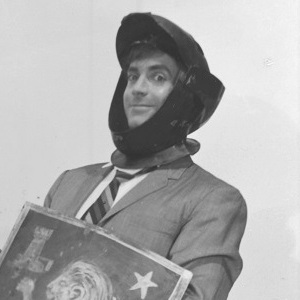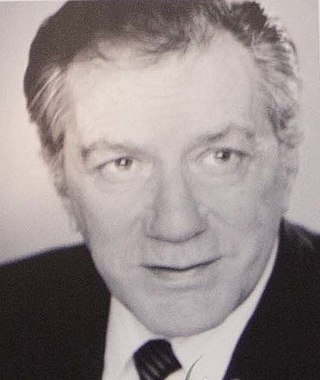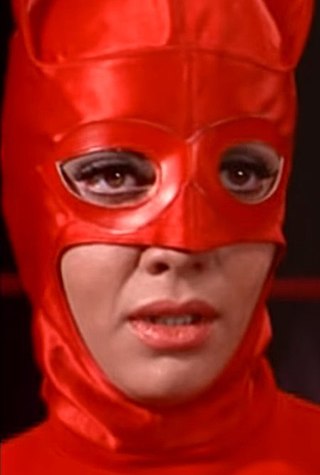Related Research Articles
Jaime Fernández Reyes was a Mexican actor. Over his career, he won 3 Silver Ariel awards — the Mexican equivalent of the Oscar — including one for what is arguably his best-known role, playing Friday, the protagonist's associate in Luis Buñuel's Robinson Crusoe. He appeared in over 200 films and served as the general secretary of the National Association of Actors (ANDA) for 11 years. His father was actor/director Emilio Fernández.

Julio Méndez Alemán was a Mexican actor.

Hugo Stiglitz López, better known simply as Hugo Stiglitz, is a Mexican actor.
Gregorio Casal was a Mexican actor, best known for his work during the 1960s, 1970s and early 1980s.

Gloria Méndez Ramos, known professionally as Gloria Marín, was a Mexican actress. She was considered a celebrated female star of the Golden Age of Mexican cinema.

Mario Almada Otero was a Mexican actor with a career lasting over seven decades. He appeared in over 300 films. He was most known for his roles in urban westerns, narco peliculas and action pictures. He was the brother of actor Fernando Almada.
Aurora 'Rory' Martínez, usually credited simply as “Rory,” is the credited director of tens of publicly released movies.

Joaquín Cordero was a Mexican actor of the cinema, theatre and telenovelas.

Blanca Guerra Islas is a Mexican actress. In 1983 she was a member of the jury at the 13th Moscow International Film Festival.

María Victoria Ledesma Cuevas, known by her stage name Rosa de Castilla, was a Mexican singer and actress. She is noted as one of the great folkloric leading ladies of the "golden age" of Mexican cinema. In the musical field, she has toured the world singing in countries such as Israel.
Día de muertos, also known as Día de difuntos and Los hijos de la guayaba, is a 1988 Mexican comedy-drama film directed by Luis Alcoriza. It is Alcoriza's penultimate film as director and his last one made entirely in Mexico; his last film directed, La sombra del ciprés es alargada, was a Mexican-Spanish co-production.

Sergio Bustamante was a Mexican actor of telenovelas, cinema, dubbing and theater.
Antonio Salazar Alejos, professionally known as Antonio Raxel, was a Mexican actor. He was also a dubbing actor for TV shows, movies, and animation.
Raúl Meraz Estrada was a Mexican actor of film and television.
Humberto Elizondo Kauffman is a Mexican actor of film and television, the son of Mexican diplomat Humberto Elizondo Alardine and Canadian actress Fannie Kauffman. Currently, he portrays Aquiles Trueba in Un refugio para el amor.

Norma Lazareno is a Mexican film and television actress.

Manuel Dondé was a Mexican film actor. He frequently played villains during his long film career.
Graciela Prior Marín, better known as Grace Renat is a Mexican vedette, actress and dancer. She was one of the most popular Mexican vedettes during the 1970s and 1980s.
Gabriela Goldsmith is a Mexican actress, former beauty queen, teacher and doctor in innovation and social responsibility and president of two civil society organizations.
References
- 1 2 Caballero, Jorge (5 May 2006). "Murió Valentín Trujillo". La Jornada (in Spanish). Retrieved 25 May 2023.
- 1 2 Alonso, Paula (8 January 2023). "Así fue el triste final de Valentín Trujillo, el gran actor del Cine Mexicano". El Universal (in Spanish). Retrieved 25 May 2023.
- 1 2 "El galán del cine mexicano que estudió derecho en la UNAM y conquistó a Lucía Méndez". Milenio (in Spanish). 20 September 2022. Retrieved 25 May 2023.
- ↑ "Hijo menor de Valentín Trujillo pinta en la calle para comer". Vangaurdia.mx (in Spanish). 28 September 2015. Retrieved 25 May 2023.
- ↑ Becerra, César (23 June 2022). "Valentín Trujillo: Este fue el padecimiento que le quitó la vida al galán del Cine Mexicano". El Heraldo de México (in Spanish). Retrieved 25 May 2023.
- 1 2 "Valentín Trujillo, el charro continuador de Jorge Negrete". El Mundo (in Spanish). 7 May 2006. Retrieved 25 May 2023.